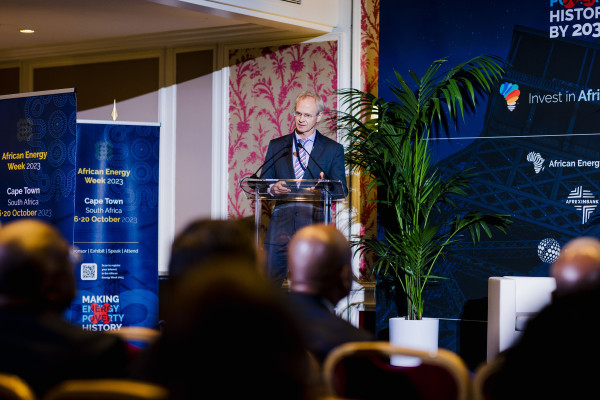Africa’s abundant natural gas reserves represent an attractive opportunity for monetization and export, aligning with Europe’s growing demand for cleaner and more energy. This synergy has set the stage for heightened Africa-Europe trade and partnership, with a focus on gas-directed investments. The upcoming Invest in African Energy (IAE) forum in Paris on May 14–15 will serve as a focal point of this topic, bringing together African nations with European investors who are eager to tap into Africa’s gas resources and unlock new sources of power.
Assessing the current infrastructure for gas transportation from Africa and Europe reveals a need for foreign direct investment in several strategic areas. These include the expansion and upgrade of existing pipelines, the establishment of advanced liquefied natural gas (LNG) terminals, and the development of efficient compression and decompression facilities. Additionally, investment in digital infrastructure for real-time monitoring and optimization is imperative to ensure the reliability and safety of an extended gas transportation network.
Given the expense of gas projects and the need for maintenance and expansion, diverse funding sources are necessary. Large-scale projects typically require investments in the range of millions to billions for successful development.
In Central Africa, Equatorial Guinea – holding 1.5 trillion cubic feet of natural gas reserves – is positioning itself as a regional Gas Mega Hub (GMH) and global exporter. The country’s Alba Liquefied Petroleum Gas and Punta Europa facilities serve as processing platforms for both domestic and regional gas reserves. Leveraging its strategic location on Africa’s west coast and utilizing the African Continental Free Trade Agreement, Equatorial Guinea’s expanding LNG export networks and potential connection to Europe-bound pipelines align with Europe’s search for alternative gas supplies. The country also presents opportunities to tap into new export routes, such as the Trans-Saharan gas pipeline, through new gas transport infrastructure linking Africa and Europe.
Much like the Trans-Saharan gas pipeline, the Nigeria-Morocco Gas Pipeline, scheduled to begin construction in 2024 at an estimated cost of $25 billion, represents one of the world’s most extensive energy projects. Spanning 5,600 km, it aims to benefit 13 African countries, providing energy access to around 400 million people along the West African coast. The pipeline, financially supported by organizations such as OPEC, demonstrates the importance of international collaboration when it comes to infrastructure development. Not only is it set to facilitate intra-African gas trade, but also deliver gas from Nigeria to Europe, serving as a key link in the global gas supply chain.
Meanwhile, the $4.6-billion Greater Tortue Ahmeyim (GTA) LNG project, encompassing the Tortue and Ahmeyim gas fields, holds approximately 15 trillion cubic feet of recoverable gas reserves. Upon completion, GTA LNG will produce up to 10 million tons of LNG annually. Positioned along the maritime border between Senegal and Mauritania, the project requires substantial investment to support critical infrastructure, including liquefaction, transportation and associated facilities.
In Southern Africa, South Africa’s Virginia Phase 2 project is set to produce commercial quantities of LNG and liquid helium for global export, while the Port of Ngqura floating LNG project will involve the installation of a floating storage and regasification unit, gas-to-power infrastructure, cryogenic pipelines, and a terminal for the processing, storing, on-site exploitation, and distribution of gas acquired from the country’s on– and offshore fields.
Similarly, the Kudu Conventional Gas Development in Namibia’s Orange Basin – set to commence commercial production in 2026 – involves collaboration among the Namibian Government, TotalEnergies, Shell and BW Energy. Representing an $880-million investment, the project is currently in the Front-End Engineering and Design phase, with a Final Investment Decision expected in 2024. European stakeholders can support this venture by investing in essential infrastructure for successful gas extraction, meeting regional energy needs while enabling exports to Europe.
In short, Africa’s leading gas export projects require substantial investments to support the development of critical infrastructure, including extraction facilities, pipelines and associated support systems, highlighting a strategic opportunity for engagement with European financiers, investors and project developers.
Organized by Energy Capital&Power, the Invest in African Energy (IAE) 2024 summit is an exclusive forum designed to foster collaboration between European investors and African energy markets. Taking place May 14-15, 2024 in Paris, the event offers delegates two days of intensive engagement with industry experts, project developers, investors and policymakers. For more information, please visit www.Invest-Africa-Energy.com.
Distributed by APO Group on behalf of Energy Capital&Power.
